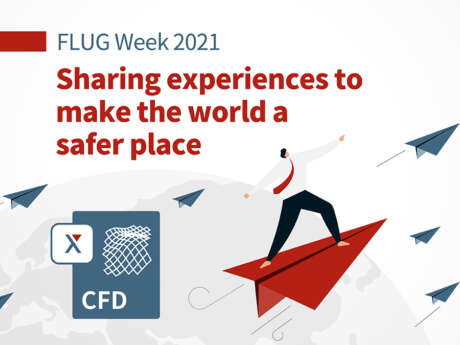“It’s great to have so many people willing to share their experiences to help us make the world a safer place.”
Chris Coffey, VP Products, reflects on the success of Gexcon’s very first online FLUG Week.
We held our first virtual FLUG (FLACS User Group) last week and, while I might be biased as one of the organisers, I think it went extremely well. We had some great speakers, from all over the world, talking on a range of topics.
While you can never fully replace the over-coffee discussion that a face-to-face meeting brings, we had some fantastic interactions with our users. If you were not able to attend live, the live recordings are available.
We held a total of 14 webinars across five days – here are some of my key takeaways.
Importance of validation
In many of the presentations, our speakers highlighted the importance of validation. We strive to make FLACS as accurate as possible, however, as a model, it can only ever be an approximation of reality and so there is an uncertainty associated with the results.
Shona Mackie gave some insight into how we perform validation at Gexcon and how we use it to drive best practice guidance for our users. Shona also showed just how high the measurement uncertainty in the experiments is too. Explosions are, by their nature, chaotic events, and measurement values can differ by up to a factor of four for experiments that are nominally identical.
Steve Howell echoed this and also highlighted that it is important that users also carry out validation studies, both so they can better understand FLACS, and so that they know how it performs for their own specific applications. We saw great examples of our users doing this presented in multiple talks, for example, Sai Matith’s, Olav Hansen’s, and Jihui Geng’s.
Range of application
It was fantastic to see FLACS being used for a wide range of applications that move beyond our historical routes in upstream oil and gas. Some examples:
- Fire modelling in transformer stations (Francesco Chillè)
- Modelling of hydrogen-powered boats (Olav Roald Hansen)
- Modelling of ethanol pools (Sai Mahith)
- Indoor dispersion of hydrogen cyanide (Jake Connor)
- Consequence modelling in the polymer industries (Gokul Mahajan)
The power of FLUG
Over the course of the week, I was really struck by the shared resource we have as a community of FLACS users. By sharing our findings, our thoughts, and our ideas we can significantly improve the software and how we use and interpret the results.
It’s great to have so many people willing to share their experiences to help us make the world a safer place.
I plan to explore ways to increase the power of FLUG, whether through an online forum, launching blind trials, making more of our validation data available, or holding more meetings.
Watch this space!















